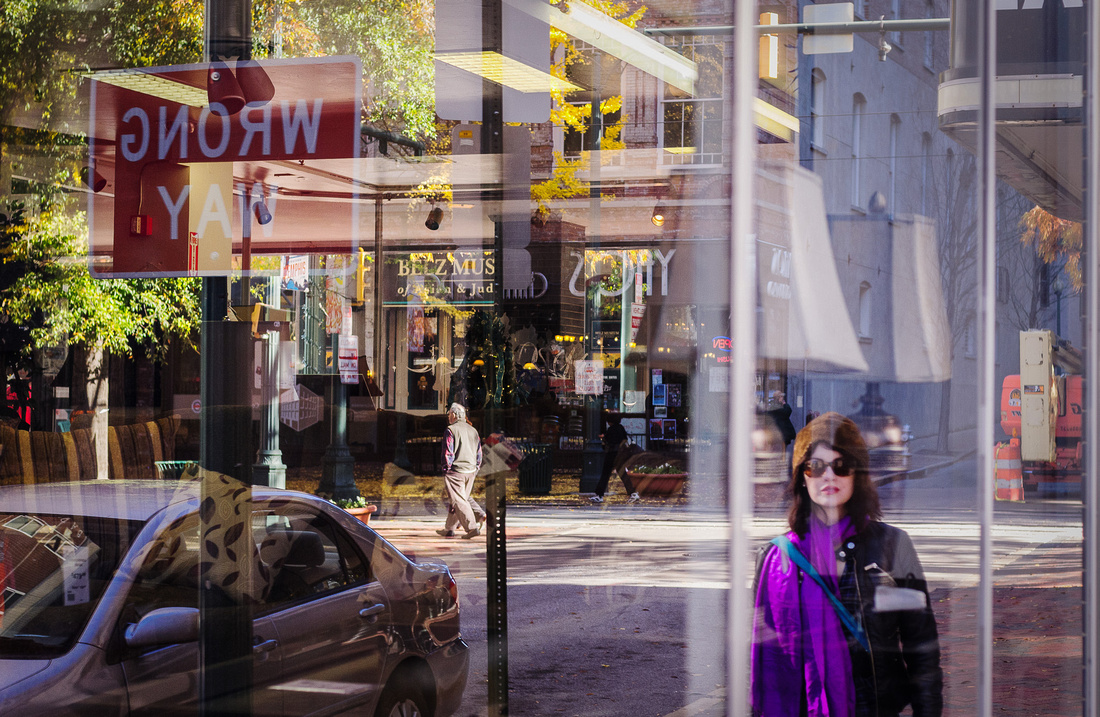Desire and Silent Rebellion

 "Our hearts are restless until they find their rest in thee, O God."
"Our hearts are restless until they find their rest in thee, O God."
-Augustine, Confessions, Bk. 1, Ch. 1.
"...[A]s [the human] will is attracted or repelled by the variety of things..., so is it changed or converted..."
-Augustine, The City of God, Bk. 14, Ch. 6.
Human beings are shot through with desire. We hunger and thirst, ache for companionship and burn with sexual desire, and we long for things, some good, some bad, most a tangle of both. Augustine knew that human beings do not merely have desires; we become what we desire. The objects of our desire shape us into the kinds of people we become. What we desire hones our attention and forms our habits, blinding us to some things, highlighting others. How we see, what we see, and who we become are intimately and complexly commingled. So, while it is true that we have desires; it is perhaps more true to say that our desires have us. We become what we desire.
The windows along Main Street are intimately connected to this economy of human desire. In them we see things and promised experiences vying for our dollars, time, and loyalty. The carefully arranged tableaus and mannequins, collections of curios, well chosen words, and price tags are not simply selling things; they are seducing us with a vision of fully satisfied human desire.
The windows offer a kind of ersatz salvation, and much of the power of consumerism lies precisely here. While it purports simply to be meeting our desires, consumerism in fact creates those desires, shaping and reshaping them ever anew by holding before us an endless array of new and improved things to be easily acquired. The power of consumerism is not so much that it offers an array of things to satisfy our natural desires for food, shelter, clothing, recreation, and companionship. Rather, the power of consumerism resides in its capacity to redirect and exaggerate these desires by attaching them to things that have been imaginatively resignified to become bearers of an elusive but powerful vision of perfect human fulfillment.
While consumerism promises perfect fulfillment, that after all accounts for its irrestibility, it in fact depends upon the continued disappointment with the things we already own to fuel a fresh and even more intense desire to acquire the latest things. Buying the lingerie found on unrealistically lithe mannequins in boutique windows will make your body desirable again in his eyes. You will be young again. You will be thin again. You will be loved again. Buying the oversized truck found in the walk-in windows at the dealership and advertised with the deep, husky male voice in the electronic window on your living room wall will settle questions about your masculinity. You'll be man enough for her. You will be loved again. Buy the larger home pictured in the windows of the real estate office and fill it with this season's newest furnishings from the furniture store windows, and your family will know domestic bliss, and your neighbors will know your social worth. Order from the menu in the window of the trendy restaurant or buy her a diamond from the jewelry case, and the spark of romance and sexual excitement will return.
While the windows of Main Street proclaim a carefully marketed gospel of commodified desire, these same windows are engaged in a silent rebellion. If you look at them rather than through them, if you look at the play of reflections with their odd juxtaposition of elements from the street that superimpose themselves upon the carefully choreographed tableaus of the marketers, you see their silent rebellion. Street signs, blurred faces with unguarded expressions, inverted words, cars, pavement, paint, and foreign signage crash disruptively into the carefully planned, controlled scenes behind the glass. Sunlight glints unpredictably and the changing play of clouds and sky appear and reappear unpredictably minute by minute. If you pay attention to the reflections, you can too easily overlook the message behind the glass. And when that happens, the windows have won their rebellion.
Despite every attempt to control what we see in them, and despite every attempt to create and direct our desire through what is seen in them, the windows won't fully cooperate. In the play of reflections, we find accidental beauty, visual riddles replacing the marketer's confident slogans, indeterminate visual possibilities that can free our imagination and liberate desire from the lie of owned things.
Yes, the windows are engaged in a silent rebellion against those who would control them, and through them, control us.
Comments
|
January
February
March
April
May
June
July
August
(4)
September (4)
(6)
October (6)
(4)
November (4)
(2)
December (2)
|
(2)
January (2)
(1)
February (1)
March
April
(1)
May (1)
June
(1)
July (1)
August
September
(1)
October (1)
(1)
November (1)
(1)
December (1)
|
January
February
(3)
March (3)
April
May
(1)
June (1)
(4)
July (4)
(2)
August (2)
September
October
November
December
|
January
(1)
February (1)
(2)
March (2)
April
May
(1)
June (1)
July
(1)
August (1)
September
(1)
October (1)
November
December
|
January
February
March
April
May
June
July
August
September
October
November
December
|
January
February
March
(1)
April (1)
May
June
July
August
September
(1)
October (1)
November
December
|
January
February
March
April
May
June
July
August
September
October
November
December
|
January
February
March
April
May
June
July
August
September
October
November
December
|
January
February
March
April
May
June
July
August
September
October
November
December
|
January
February
March
April
May
June
July
August
September
October
November
December
|